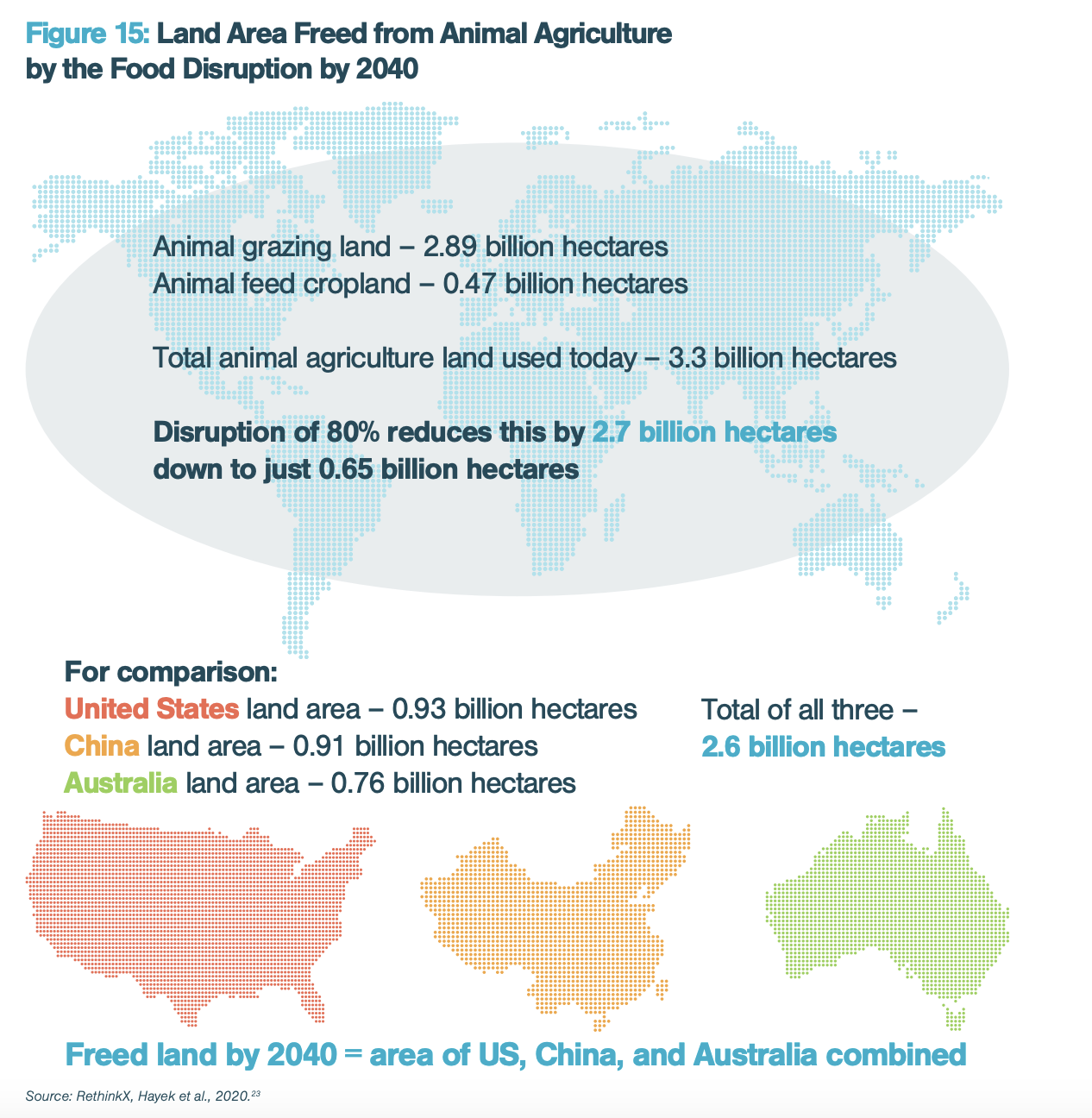Globally, animal agriculture consumes 3.3 billion hectares of land in the form of pasture and feed cropland. The food disruption will free up 80% of that land.
Of the 3.3 billion hectares currently used for our food and agriculture system, 80% of that land will be freed–an area the size of the United States, China and Australia combined. This staggering transformation will present an entirely unprecedented opportunity for conservation, rewilding and reforestation.
Explore the evidence...
- Today, animal agriculture consumes 3.3 billion hectares of land in the form of pasture and feed cropland. (Hayek, M. N., Harwatt, H., Ripple, W. J., & Mueller, N. D. (2020). The carbon opportunity cost of animal-sourced food production on land. Nature Sustainability, 4, 21–24. Retrieved from here)
- The food disruption caused by technologies like Precision Fermentation (PF) will free up 80% of that land–an area the size of the United States, China and Australia combined. See this in the data visualisation below. This staggering transformation will present an entirely unprecedented opportunity for conservation, rewilding and reforestation. Even without active reforestation, the passive reforestation of this land through the process of natural recovery will capture and store a quantity of carbon equivalent to up to 20% of today’s global emissions (see Appendix C (p57) of our report Rethinking Climate Change)
- Read p29-31 of our Rethinking Climate Change for more on the disruption of food & agriculture (graph below taken from p31 of our Rethinking Climate Change report.)

Witness the transformation
The land freed up from the modern food & agriculture disruption represents an unprecedented opportunity to reimagine the global landscape. We are on the cusp of the deepest, fastest, most consequential disruption in food and agricultural production since the first domestication of plants and animals 10,000 years ago.
Learn more about the disruption of food & agriculture.
Published on: 12/07/23
